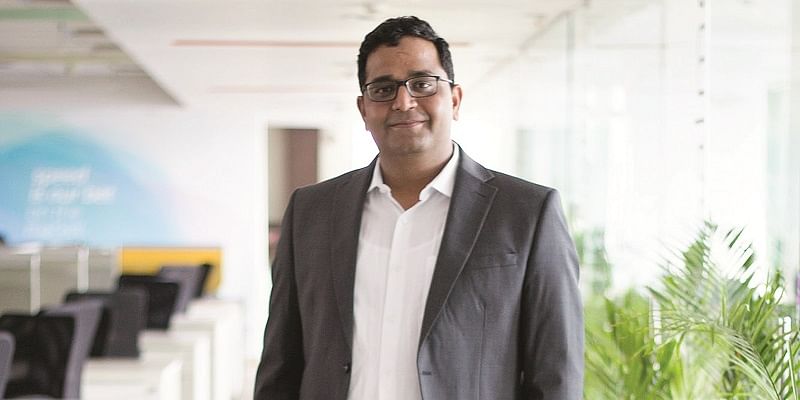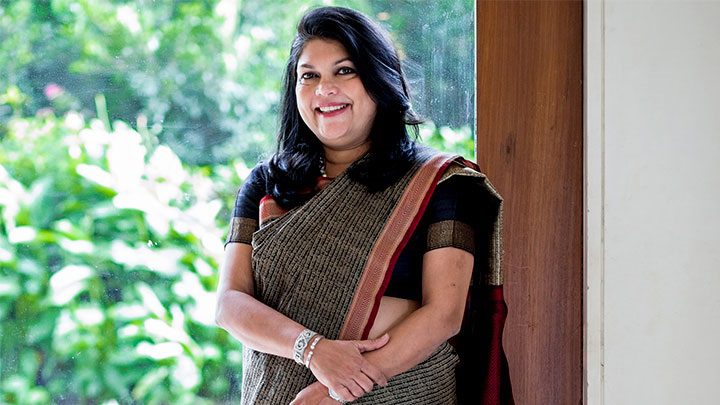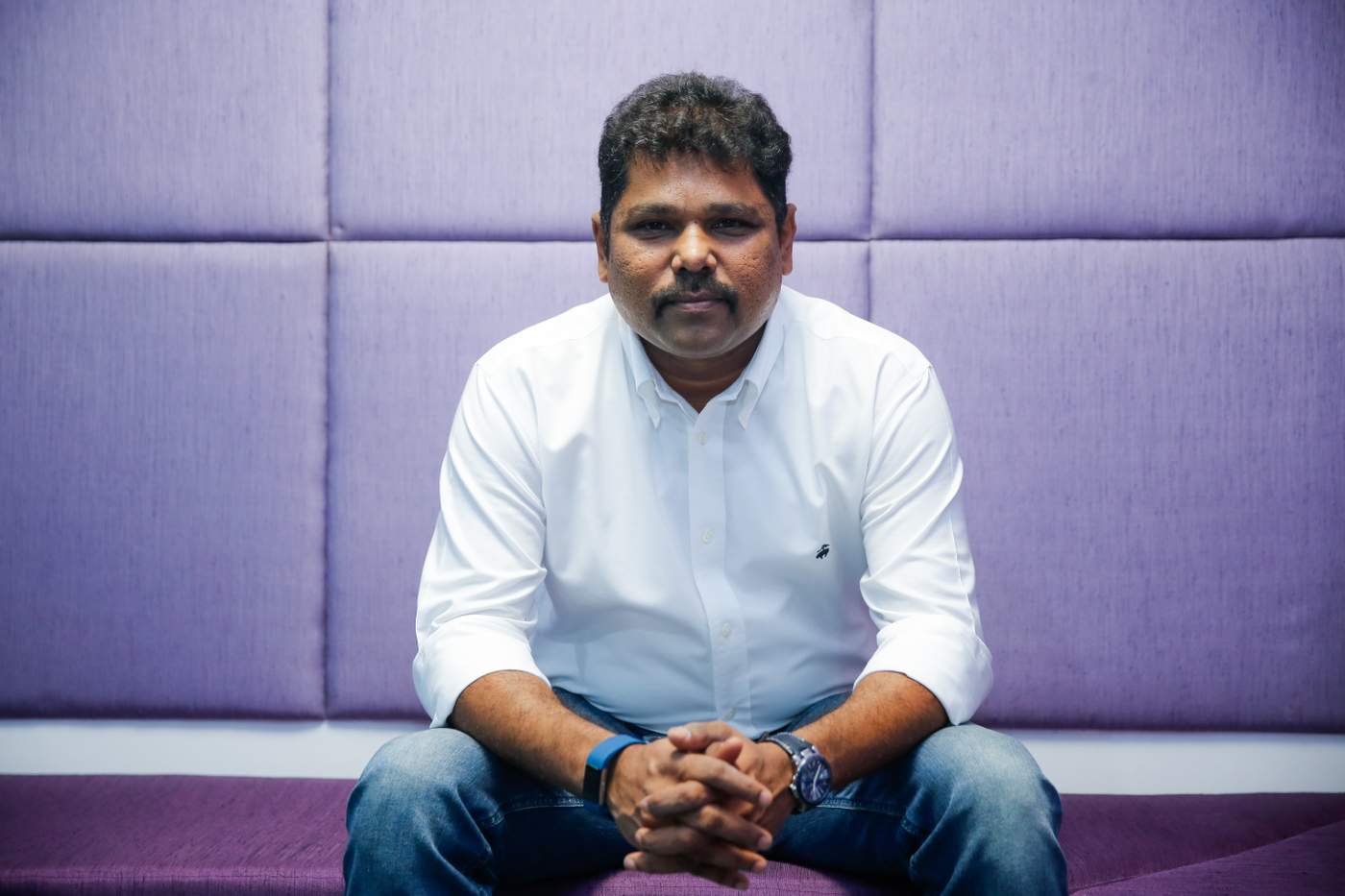(November 12, 2021) For Vijay Shekhar Sharma, mediocrity just doesn’t cut it. Even his Noida office has a large poster that says Go Big or Go Home. Which is why this lad from Aligarh, who once struggled with speaking English and college, is today helming Paytm, one of the country’s most successful ventures. The company which is gearing up for its big listing this month has weathered its fair share of storms under Sharma’s leadership.
From selling ringtones to running an Internet conglomerate, Sharma has come a long way from his Aligarh days and has managed to stay relevant through the times. Today, this Global Indian has in his corner several accolades and recognitions. In 2017 he was ranked as India’s youngest billionaire by Forbes, he has been featured in Time Magazine’s World’s 100 Most Influential People, he has received the Yash Bharati, the UP Government’s highest civilian honour and in 2020 was ranked as the 62nd richest person in India by Forbes with a net worth of $2.35 billion. This road to success for Sharma was paved from his humble beginnings in Aligarh.
She has the power of @Paytm 😊🚀 https://t.co/N3GnMgPCal
— Vijay Shekhar Sharma (@vijayshekhar) November 7, 2021
From Aligarh to the top
Born in 1978 in a middle-class family in Aligarh, Sharma is the third of four children. His father Sulom Prakash was a school teacher and his mother Asha a homemaker. An exceptionally bright student, Sharma passed his class 12 at the age of 14 from a Hindi medium school. However, he faced his first major challenge when he joined Delhi College of Engineering for his graduation. Up until then Sharma was teaching himself English by reading the English and Hindi versions of the same book simultaneously. But in college the language divide seemed that much greater. He saw his grades gradually slip and the once topper was soon struggling to stay afloat academically.

There came a point when he stopped going to college altogether. However, Sharma was not your typical youngster. Instead of letting this set him adrift, he used his time away from college to hone his entrepreneurial skills. When he was in the third year of his engineering course and all his batchmates were appearing for placement interviews, Sharma channelled his energies into building his first company XS Corporation, a content management system that was eventually used by some of the biggest publications of the time, including The Indian Express.
Rough weather ahead
He’d taught himself to code and also raised seed money worth ₹20,000. He eventually sold the company to Living Media India, or the India Today Group as it is better known. He made half a million dollars from the sale and split the money with his co-founders. He used the money to buy his family a television and helped his father repay the loan he’d taken to get Sharma’s sisters married off.
While it seemed like things had finally settled for this lad from a small town with big dreams, things were only just getting started. In 2000 he founded One97, Paytm’s parent company, along with a colleague. The company began as a mobile value-added services company. As luck would have it, the 9/11 terror attacks happened and Sharma’s partner exited the company, leaving him with no money. By the time, he’d already taken a massive loan of ₹8 lakh at a high rate of interest. Sharma ended up taking on petty jobs to make ends meet. From setting up LAN connections to delivering guest lectures, the then 25-year-old done it all. In interviews he said that there were days when he wouldn’t have enough money to buy dinner; even being able to afford two cups of tea seemed like a luxury.

Not one to give up, Sharma soldiered on. He took up a job as a consultant to help stay afloat and to keep One97 running. Around this time smartphones had begun to become popular. It’s when he came up with the idea for Paytm, a proposal that the board wasn’t too convinced about betting the company’s money in what was a non-existent market at the time. However, this time, Sharma was convinced and he didn’t want to depend on any external funding and put in $2 million from his own money to launch the company in 2009. In an interview he said, “Some other entrepreneur would have sold the equity and started their own company. But I aspired to build a 100-year-old company. I think that men and boys are different because the boys flip and sell. Men run and build legacies.”
Driven by conviction
As Paytm entered the market it turned out to be a huge disruptor and a trendsetter in many ways. It revolutionised access to digital payments and financial services in India. Today, it is India’s leading financial services company and offers full-stack payments and financial solutions to consumers, merchants and online platforms. Available in 11 Indian languages, it offers users a host of services such as recharge, bill payments, travel bookings, movie bookings, and in-store payments at a variety of merchants using the Paytm QR code.
The 2016 demonetisation also proved to be a huge turning point for Paytm when more and more people signed up for cashless transactions in what was one of the biggest financial upheavals of our times. Soon everyone from the fruit vendor, to gas station employee and auto driver was accepting Paytm transactions.
Shortly the company launched a range of other offerings including Paytm Payments Bank, the country’s largest digital bank with over 58 million account holders. It served the under-served Indians and brought them under the formal banking system with its range of financial services. Paytm First Games and Paytm Insurance soon followed, offering consumers financial services at the touch of a smartphone screen.

Today valued at over $16 billion, Paytm is the country’s most funded unicorn and with the advent of UPI has adapted itself to the changing times. It has also spread its operations to other countries such as Japan and has plans for further expansion. In an interview with Fortune, Sharma said, “What our learning has been is that our technologies are not necessarily only for consumers in emerging markets, frontier markets; they are as good and as useful for people in developed markets as well. My understanding has been [it has to go] from India to the developed markets—Japan, to the Americas, to Europe. I would prefer that to happen than go to frontier markets in Africa. Paytm will be making technologies for the world and the best benchmark for that will be the day when we go and land in the US.”
IPO rush
Now, the company is gearing up for its huge IPO later this month; it is touted to be the biggest IPO in India’s history. Paytm is preparing for an ₹18,300 crore IPO that opened for subscription this week at a price band of ₹2,080- ₹2,150; India’s largest market debut, which until now had been held by Coal India. Talking to Moneycontrol, Sharma said, “There is a tremendous amount of work that goes into running a company and this kind of milestone where we can take this to mass investors, where we can go for an IPO is incredible. I never thought it would happen so fast. The pandemic accelerated every journey- swing from consumer to merchant mindset to readiness for an IPO. It is better for us to become an India-listed entity and India story instead of waiting for a foreign listing.”



